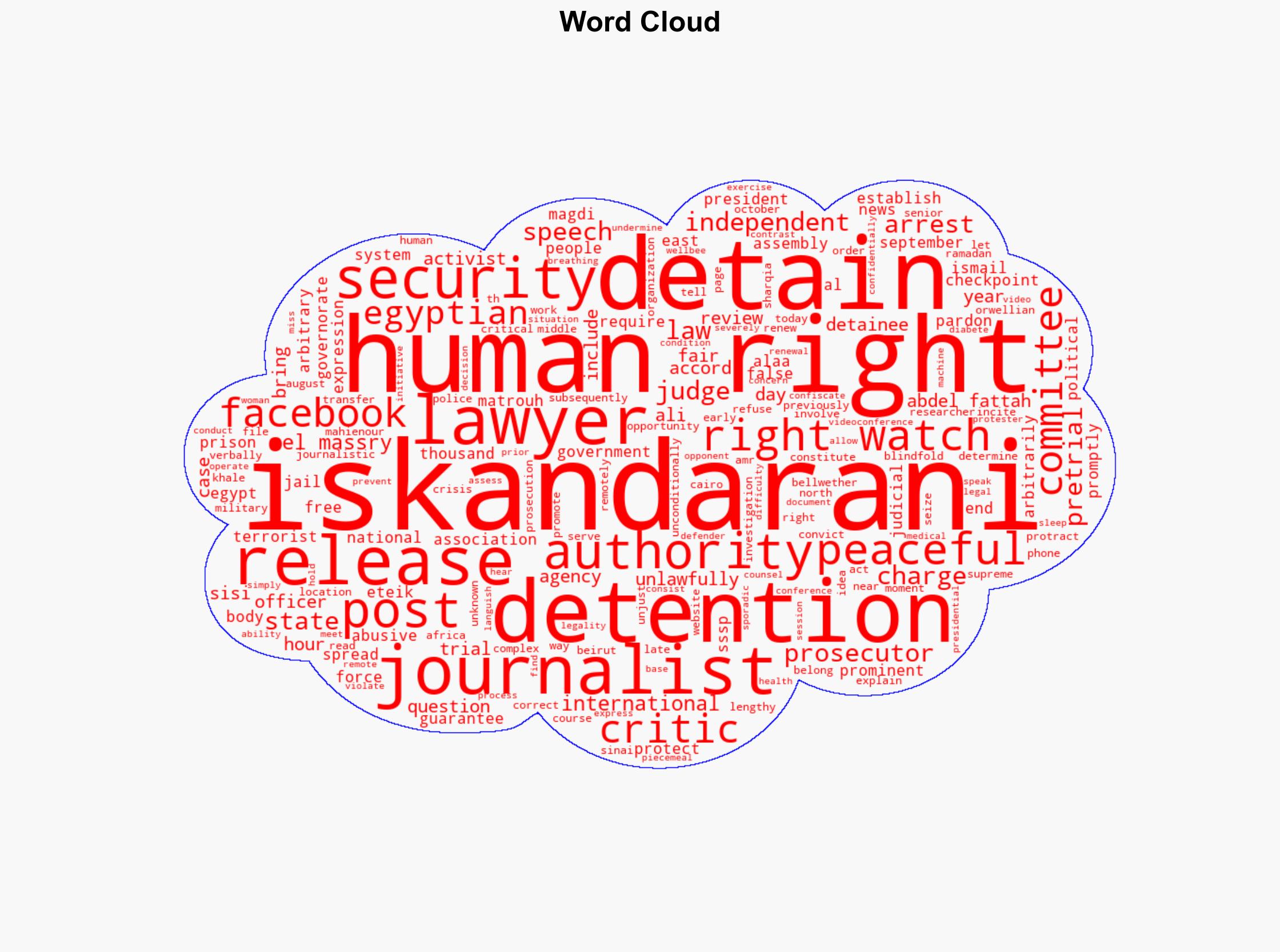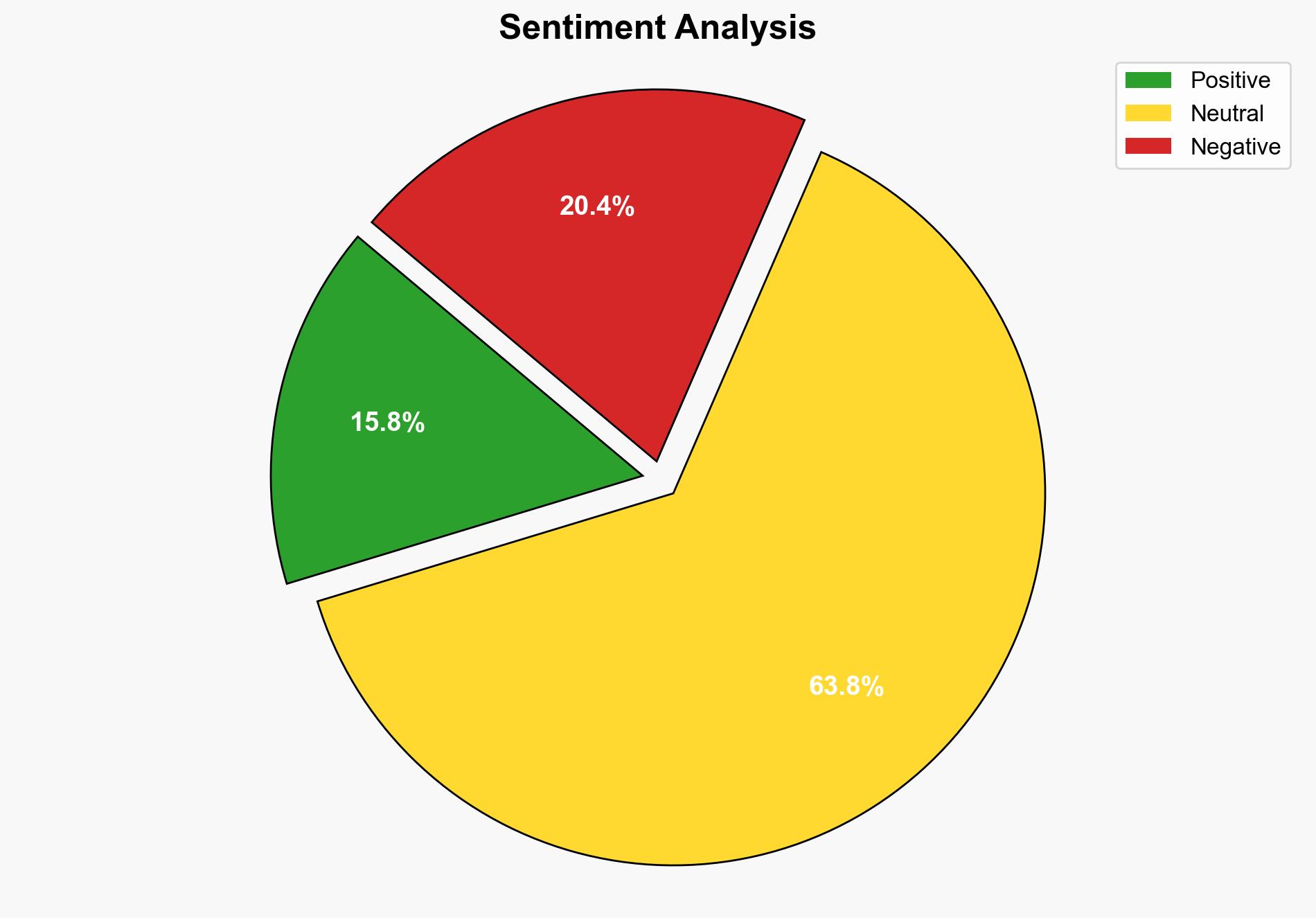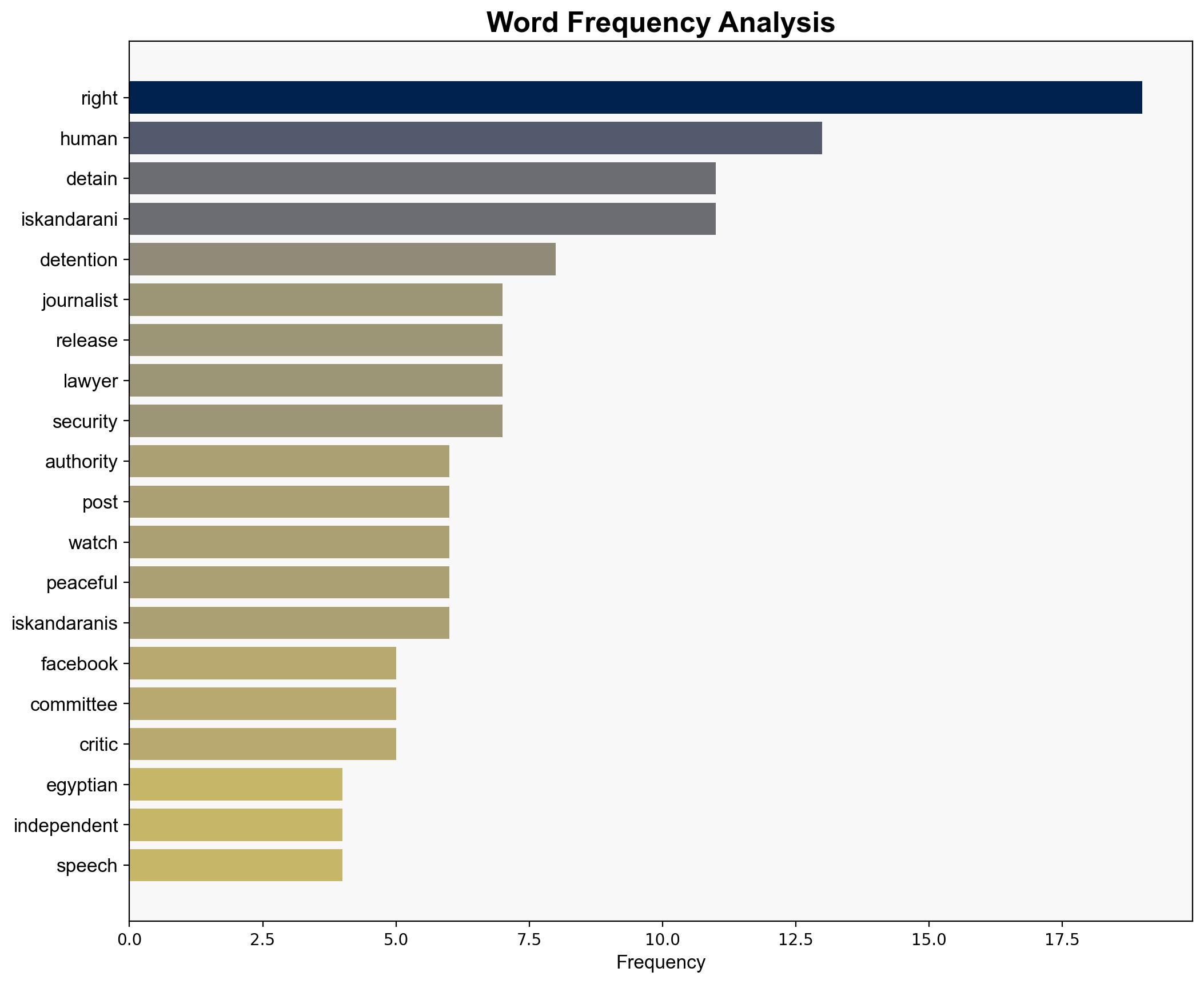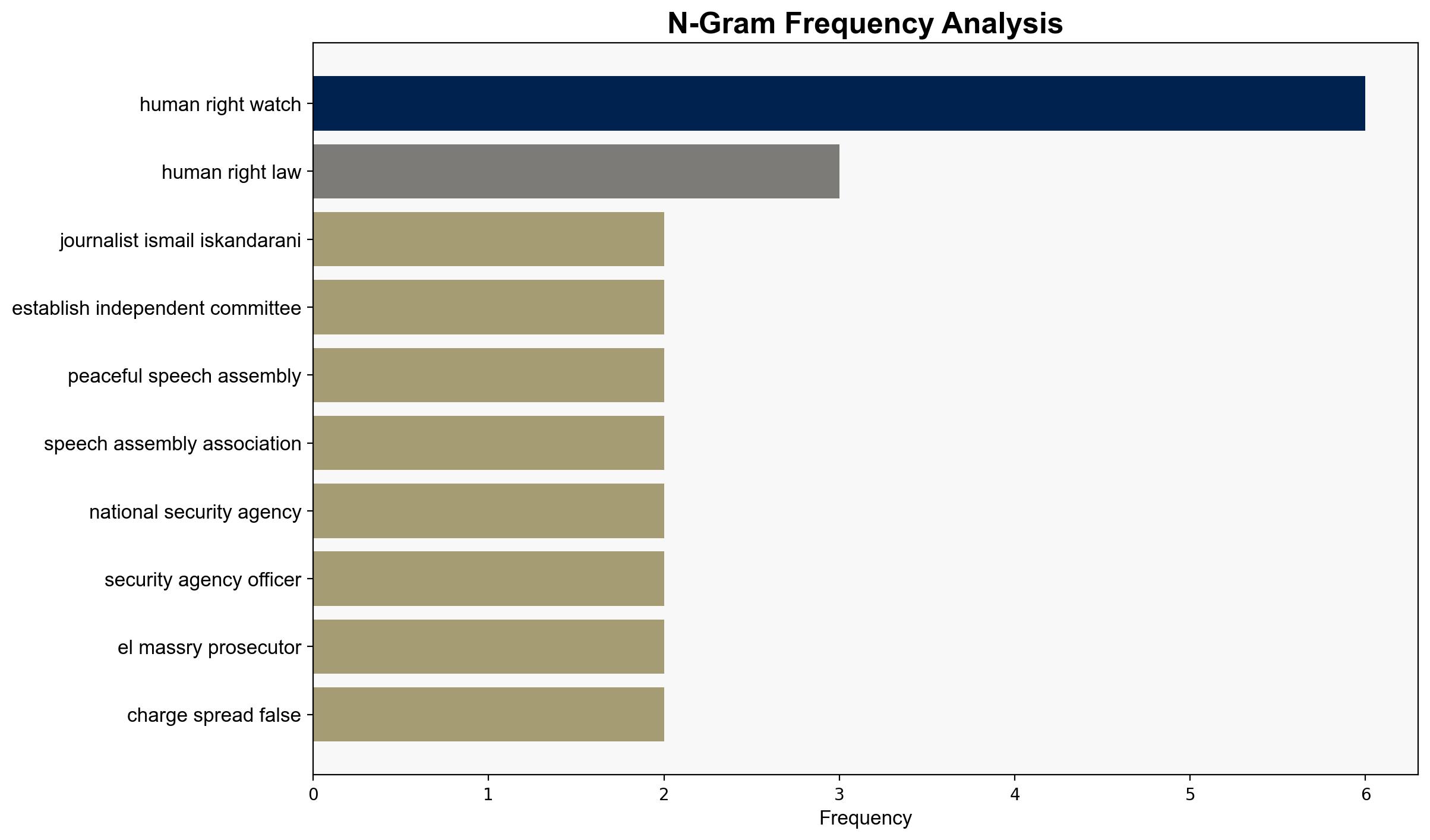Egypt Journalist Detained over Facebook Posts – Human Rights Watch
Published on: 2025-10-08
Intelligence Report: Egypt Journalist Detained over Facebook Posts – Human Rights Watch
1. BLUF (Bottom Line Up Front)
The most supported hypothesis is that the detention of Ismail Iskandarani is part of a broader strategy by Egyptian authorities to suppress dissent and control public discourse. Confidence in this hypothesis is moderate to high, given the historical context and patterns of similar actions by the government. It is recommended that international human rights organizations increase pressure on Egypt to adhere to international human rights standards.
2. Competing Hypotheses
1. **Hypothesis A**: Ismail Iskandarani’s detention is a targeted action by Egyptian authorities to suppress dissent and control public discourse, particularly in response to his critical Facebook posts.
2. **Hypothesis B**: The detention is primarily a legal action based on accusations of spreading false news and inciting terrorism, reflecting a genuine security concern by the state.
Using the Analysis of Competing Hypotheses (ACH) 2.0, Hypothesis A is better supported due to the pattern of similar detentions and the lack of transparency in the legal process, which suggests a political motive rather than a purely legal one.
3. Key Assumptions and Red Flags
– **Assumptions**: Hypothesis A assumes that the Egyptian government systematically targets journalists and activists to suppress dissent. Hypothesis B assumes that the state has legitimate security concerns that justify such detentions.
– **Red Flags**: The lack of access to legal counsel and the opaque nature of the charges raise questions about the legitimacy of the legal process. The timing of the detention, shortly after a presidential pardon of another activist, suggests a potential political motive.
– **Blind Spots**: Limited information on the specific content of Iskandarani’s posts and the internal decision-making processes of Egyptian authorities.
4. Implications and Strategic Risks
The continued detention of journalists and activists could lead to increased international condemnation and potential sanctions, impacting Egypt’s geopolitical relations and economic stability. Domestically, such actions may fuel further dissent and unrest, potentially destabilizing the region. The use of technology for remote hearings without due process could set a precedent for other authoritarian regimes, posing a broader threat to human rights globally.
5. Recommendations and Outlook
- International bodies should advocate for the establishment of an independent review committee to assess the legality of such detentions.
- Encourage diplomatic engagement with Egypt to promote adherence to international human rights norms.
- Scenario Projections:
- **Best Case**: Egypt releases Iskandarani and other detainees, improving its international standing and reducing domestic unrest.
- **Worst Case**: Continued detentions lead to increased international sanctions and domestic instability.
- **Most Likely**: Sporadic releases and continued detentions maintain the status quo, with ongoing international criticism.
6. Key Individuals and Entities
– Ismail Iskandarani
– Abdel Fattah al-Sisi
– Alaa Abdel Fattah
– Amr Magdi
– Mahienour El Massry
– Khale Ali
7. Thematic Tags
national security threats, human rights, regional focus, media freedom, political repression




